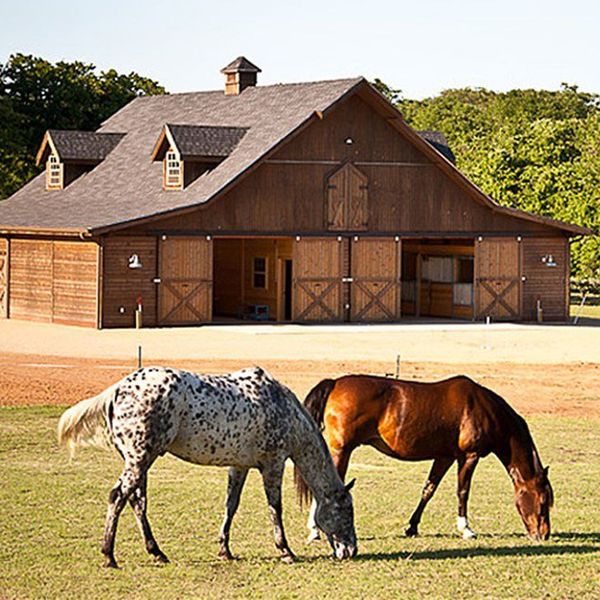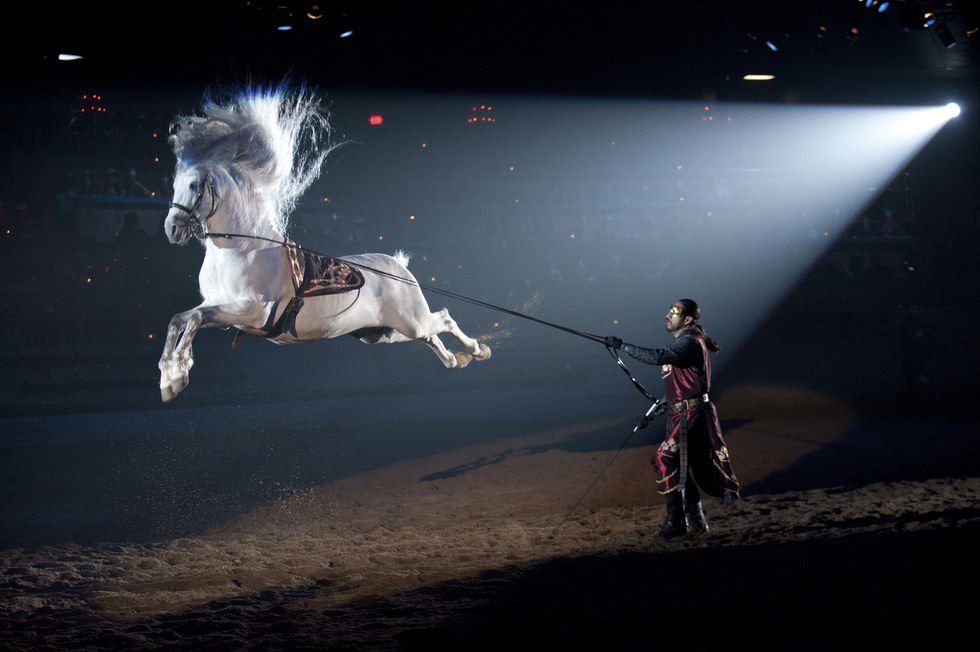Recently, I visited Medieval Times in Buena Park, California, and I absolutely loved it. From the savory feast to the cheerful ambiance, to the beautiful horses and dramatized jousts, Medieval Times is a great place for those who are looking to have a uniquely fun time with family or friends.
Being the daughter of a man who loves to pull over in a random neighborhood to stare at farm animals, the horses were my favorite aspect of the show. They were gorgeous and well-trained. The first part of the show showcased a few glossy white Spanish horses. One performed a levade, which involves balancing on its hind legs at a 45 degree angle to the ground, on command. Another sprang into the air (pictured below). It was something I had never seen before. Members of the crowd cheered as they greased their fingers with food.
A few minutes after the show, I walked with some friends to look at a few horses in their box stalls. Because a show was currently ongoing, there were only two of them. I hope I wasn't simply personifying the horses in my head, but they looked bored, possibly sad. Given the lasting effects of the documentary Blackfish, which depicted the lives of orcas in captivity at SeaWorld and cost the franchise millions of dollars, its prevalence in pop culture, its attendance, and recently its orca breeding program, the happiness and well-being of animals in entertainment is now constantly thrown into question.
I am by no means criticizing Medieval Times, as I know nothing about the entity's animal care procedures. However, it is necessary to acknowledge that animal abuse for entertainment and money is very common worldwide.
Domesticated animals— creatures that are fully accepted and immensely loved by nearly everyone— are treated like dirt by entertainment industries. Horse racing often involves illegally injecting cocaine (occasionally snake venom) in horses in order to minimize their pain. Furthermore, about 24 horses die each week on American racetracks. During production, of Disney's Snow Buddies, 15 young golden retrievers fell ill. Some of them died. Dogfighting may be banned in all 50 states, but it remains big business. Up to $100,000 can be on the line in a top-level "professional fight". In cockfights, the "loser" is usually discarded in the trash, and the "winner" often ends up disfigured.
Sometime during human history we decided that animals were ours, but they are not. Yes, our consumption of meat, eggs, and dairy has always been a part of humankind's relationship with other animals, they way some animals have always eaten other animals. But lines have been crossed. People force animals to do things they were not born to do and in terrible conditions, for greed and amusement, and not for one's own survival.
One last example: Naturally-agile greyhounds are used to race in large numbers. If they are too slow, they get killed. A Sunday Times 2006 investigation revealed that a builders' merchant willingly took "too-slow" but perfectly healthy greyhounds and stunned them (about 10,000 over 15 years) with a bolt gun.
Let's say— a completely hypothetical situation— that Medieval Times doesn't give their horses their entitled respect and comfort. Would I brush it off because I had fun at that place? Would you ignore the mistreatment of race horses because you love watching their lovely gaits on television? Society must learn to sacrifice our entertainment for the livelihood of our fellow animals.




















